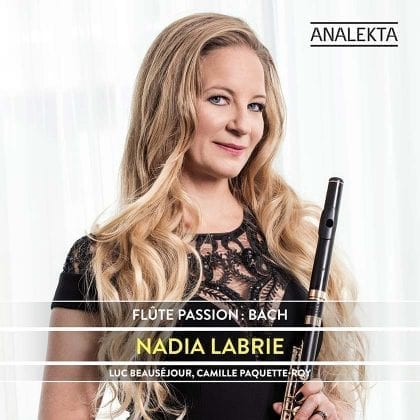Precision and direction are two more than appropriate terms to describe this second album in the Flûte Passion series, which features three Quebec artists well established in the music scene here at home: Nadia Labrie, Camille Paquette-Roy and Luc Beauséjour. Labrie is a flautist who holds a master’s in interpretation from the Université de Montréal, and a first prize with great distinction from the Conservatoire de Québec. Paquette-Roy has a similar background, holding a diploma from the Conservatoire de Trois-Rivières and a master’s degree in interpretation from McGill University. Both women are accompanied on the piano by Beauséjour, a specialist in early music and director of the baroque music workshop at the Université de Montréal, among others. This trio offers the opportunity to discover key works from the flute sonata repertoire of Johann Sebastian Bach. The communion between the three musicians – which is audible – makes the interpretation of these three sonatas highly interesting. The precision of the attacks on the flute, the lightness of the cello bow and the perfect swing of the piano accompaniment allow us to float to the sound of this breezy music. The album closes with the Partita for solo flute in A minor by the same composer, leaving us to appreciate the flawless instrumental technique and the roundness of Labrie’s sound.
























